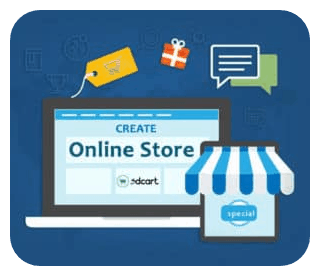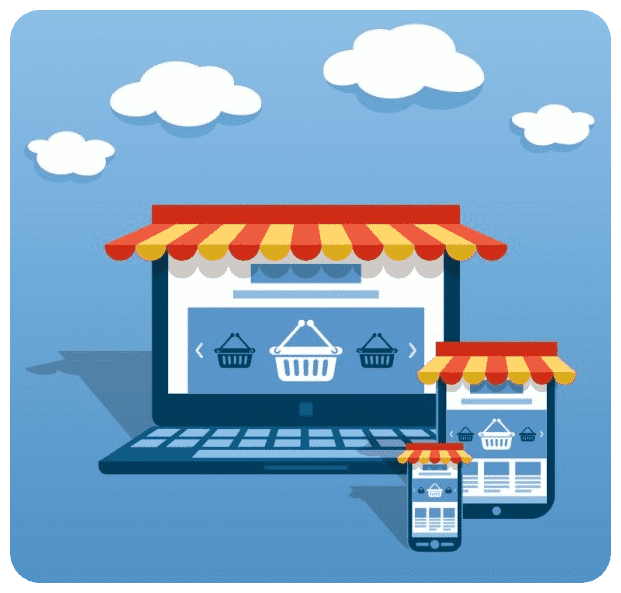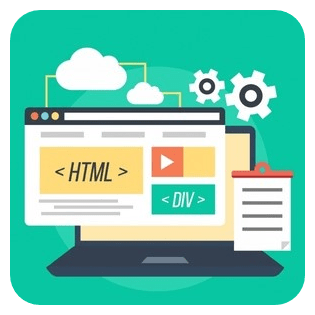Disclosure: Aussie Hosting is community run. We sometimes earn a commission when you buy hosting through our links. Learn more.
How to Start an Online Store 2025
 Online stores are everywhere these days and for good reason!
Online stores are everywhere these days and for good reason!
In fact, making an online store is one of the best ways to start your entrepreneurship journey, building a brand, whether you’re interested in becoming a business master or for specific types of e-commerce.
But if you’ve never made an online store before, you might be wondering where to start. This guide will break down how you can start an online store in just six easy steps.
Pick a Niche
The first thing you’ll need to do is pick a distinct niche for your online business. The online e-commerce sphere is especially competitive, and if you want your online store to be successful, you have to pick a niche where there’s room for your brand to grow.
There are hundreds of niches to consider, with many of the most popular and potentially profitable including:
- ☑️ Apparel
- ☑️ Software
- ☑️ Toys
- ☑️ Gadgets
- ☑️ Labeled Products
- ☑️ Stoneware
- ☑️ And more
It’s up to you to decide what you want to sell. In many ways, this is one of the most fun parts of starting an online store! Think of what you’re enthusiastic about and consider whether you can sell items you care about through an online store.
Starting an online business is much easier when you know what is your niche going to be.
Decide What Products to Sell/Dropship
 You’ll also need to decide what products – if any! – you plan to sell at your online store. Remember that the types of products you sell can significantly impact the logistics of your online store’s operation.
You’ll also need to decide what products – if any! – you plan to sell at your online store. Remember that the types of products you sell can significantly impact the logistics of your online store’s operation.
For example, it's much easier to make and ship T-shirts with your own branded logos than it is to make custom furniture and ship it across the country.
These limitations can make certain types of products more or less appealing for your brand. You should take your own skills into account as well.
Things you can make and ship yourself will be cheaper whereas products that require the services of others will cost more to produce (since you’ll have to pay employees or contractors to do most of the work).
Additionally, there are two different types of online stores; you’ll have to decide which you want to pursue.
Selling Your Own Products
Your online store can, of course, sell your own products. With this store model, you'll create and sell products that you either make in-house or that you make to be branded for your store alone by contracting out the work to freelancers or manufacturing companies.
This is the most common type of online store, but it’s not the only type that can be successful.
Dropshipping
 The other type of online store is a dropshipping store. Dropshipping is a newly popular online store model that involves buying products made by a wholesale manufacturer or another company and selling those products on your own store.
The other type of online store is a dropshipping store. Dropshipping is a newly popular online store model that involves buying products made by a wholesale manufacturer or another company and selling those products on your own store.
You’re essentially the middleman, offering affordable prices to product buyers and helping to connect wholesale suppliers to willing customers.
The benefits? You don’t have to hold inventory and you can get your store up and running much faster. But you are limited in the products you can sell and have to make deals with wholesale manufacturers for this store type to work. Finding a good eCommerce platform is also important.
Either type of business model can be suitable; you just have to decide which seems more appealing to you.
Decide on a Business Name
 Your next step, once you’ve decided what you want to sell and which industry you want to try your hand at, is to decide on a business name.
Your next step, once you’ve decided what you want to sell and which industry you want to try your hand at, is to decide on a business name.
Your business name has to be unique, relevant to your industry or services, and memorable so it sticks in the minds of your target consumers.
“Apple” is a great example. It’s an easy to remember and iconic name and now everyone knows that it belongs to the tech and gadget giant in the IT industry.
This isn’t to say your business is going to be the next Apple Computers! But the same principles hold. Try to come up with a business name that rolls off the tongue, isn’t too complex, and will suit your business for months or years to come.
Domain Names
Since you’re starting an online business, it’ll also pay to consider a business name that you can make a domain name as well.
Your website’s domain name is essentially its address (not the IP address, which is just a sequence of numbers). The domain name also has to be memorable, easy to spell or type into the address bar, and will help to distinguish your website from others across the Internet.
You can check domain registrars to see if a domain name is available before settling on one, or try to purchase a domain name that is taken by someone else. For the best results, choose a name for your business that has a domain name already available so you can name your website the same name as your brand.
This will make it easier for your customers to find your store.
Make a Website
 It’s finally time to start building a website!
It’s finally time to start building a website!
Every online store needs a top-tier e-commerce website where customers can shop, where consumers can read blogs or tutorials, and where your customers can contact you if they have questions.
Fortunately, there are lots of excellent free website builders out there, especially those specifically tailored for e-commerce stores.
Many website builders allow even folks with no website building experience to make top-tier online locations in as little as a few days.
You can alternatively hire a web designer and developer to build you a website from scratch. This may result in a more intuitive and robust website, but keep in mind that it’ll be much more expensive as you’ll be paying for the talents of experts.
WordPress or Something Else?
You should consider whether you want your website to be hosted on WordPress or another type of content platform. WordPress is the most popular content platform on the web, and it’s ideal for many types of e-commerce businesses.
But there are other types of e-commerce stores or platforms you can check out as well. Some platforms are specifically designed for e-commerce stores, offering enhanced checkout and shopping cart functionalities, special tools and widgets, and more.
But WordPress is preferred for most website owners because of its versatility and ease of use. You can find thousands of themes and plenty of widgets or extra controls for your online store using this platform.
Set Up Your Company
![]() Depending on how big you want your future online store or company to be, you may need to set up an official company, either as something like a sole proprietorship or a small LLC (limited liability company).
Depending on how big you want your future online store or company to be, you may need to set up an official company, either as something like a sole proprietorship or a small LLC (limited liability company).
Setting up an official company can provide you with several major advantages, including tax breaks.
However, if you just have a single online store, you’ll be best off forming a simple LLC or sole proprietorship rather than trying to incorporate.
EIN, Taxes, and More
If you do decide to set up a full company, you need to apply for an EIN or Employer Identification Number from the IRS. This is necessary even if you don’t have any employees aside from yourself (although it’s also needed if you do want to employ other people in the future) because the IRS needs it to identify your business.
Think of it as a kind of business Social Security number.
You’ll also want to pay attention to quarterly tax dates. As a new small business owner, you have to pay quarterly estimated taxes to the IRS on all the income from your business rather than having taxes taken out of your paychecks automatically.
You can either follow the calendar year or a separate fiscal year. Either way, be sure to read up on taxes and figure out when you need to pay the IRS so you aren’t saddled with extra fees at the end of every year.
Start Marketing
![]() After all of the above steps, you’ll still need to start marketing your business if you want people to know that you are selling things and ready for their patronage!
After all of the above steps, you’ll still need to start marketing your business if you want people to know that you are selling things and ready for their patronage!
There are lots of different ways to start marketing your online business, ranging from social media posts to Google ads to Facebook ads and more.
Digital marketing is a complex topic in and of itself, so don’t expect your marketing efforts to be perfect right off the bat.
Spend plenty of time creating high-quality marketing campaigns and gathering data on your users. As you gather data, you can tailor future marketing campaigns to those consumers and make your ads or email marketing much more effective.
Summary
Ultimately, starting an online store could be the best way to begin your business ventures, especially given the potential profitability of e-commerce platforms.
Just be sure that you cut costs where you can and that you choose an excellent hosting platform for your future online business – your customers will need to rely on your online store if you want to see long-term success.
Fortunately, you can find more information about top-tier web hosting choices on our site – check out our other guides today!

